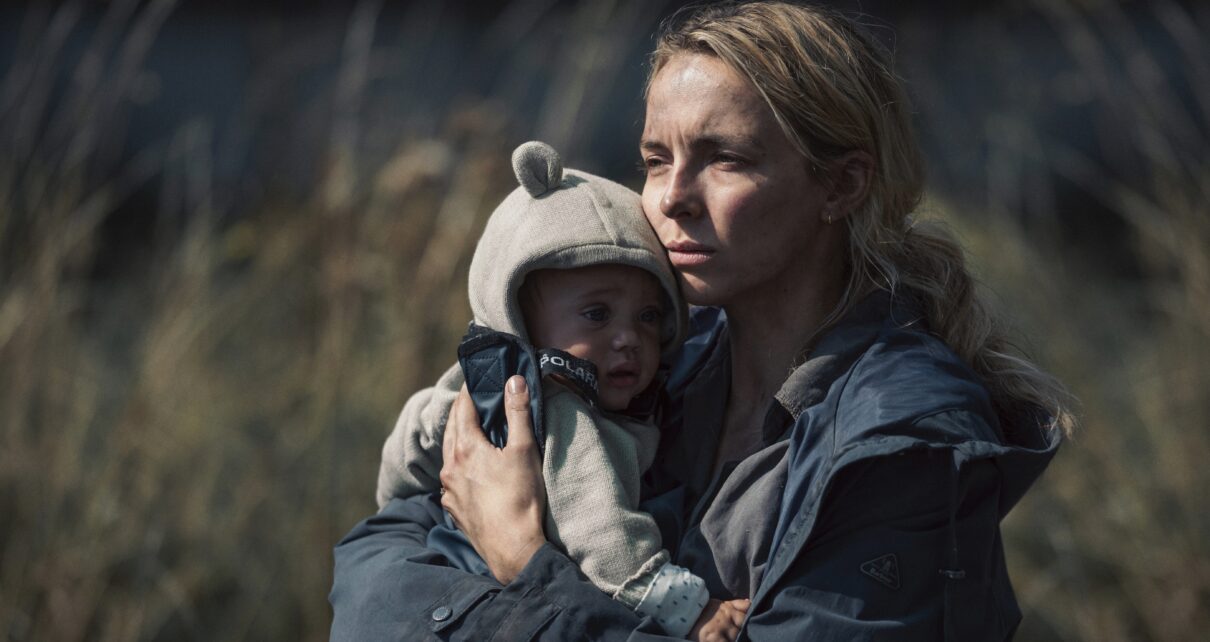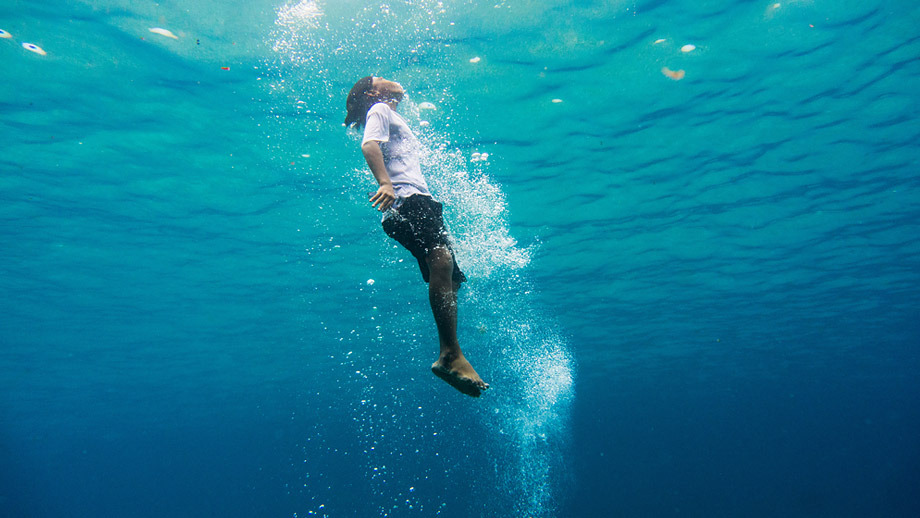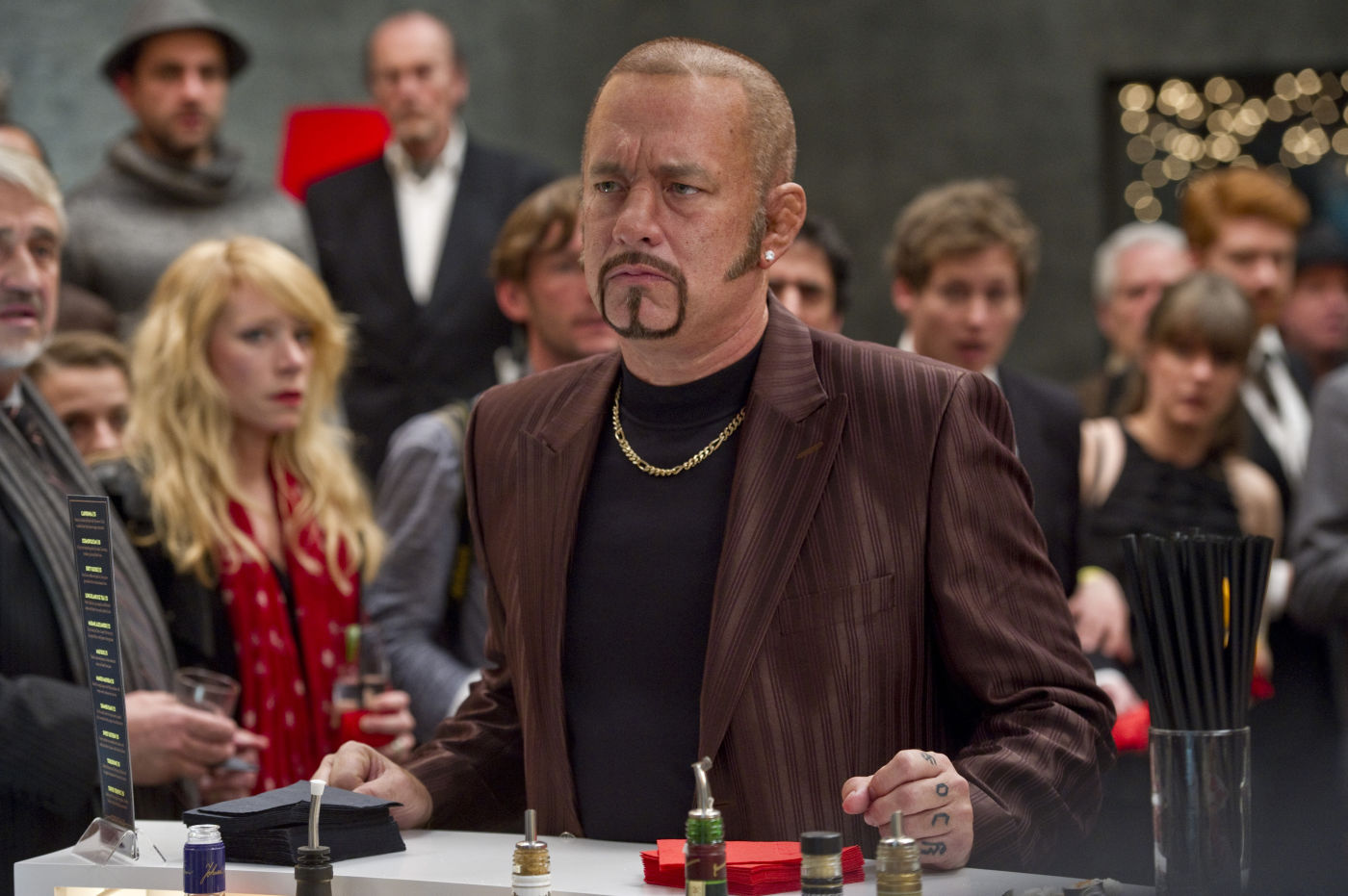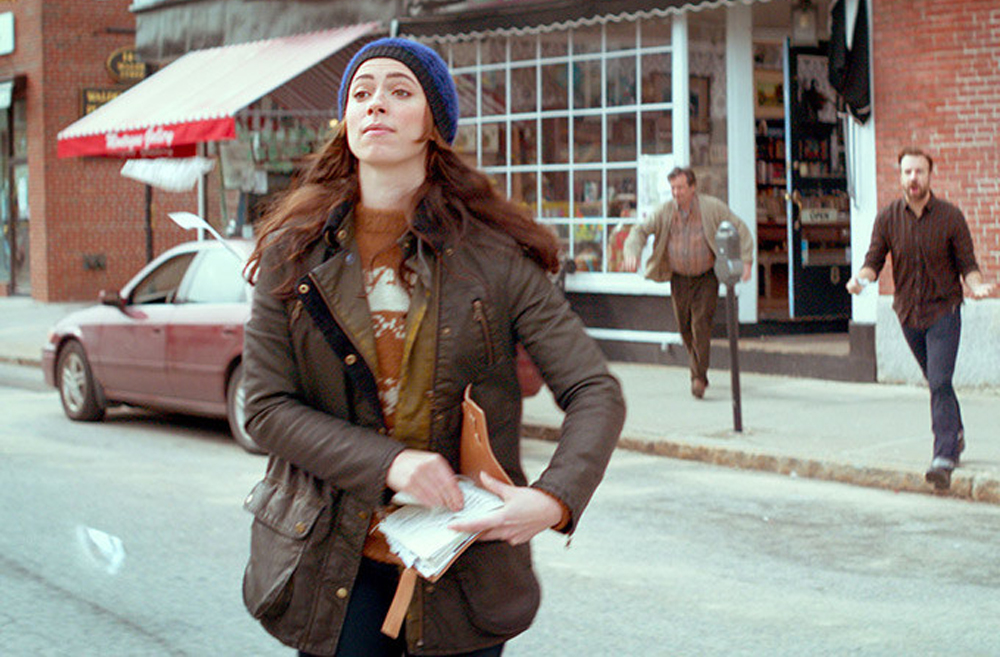Do you think depression will ever get its due? To me, depression is perfectly natural and universal. It is a common emotional response to the acknowledgment that there are problems you cannot solve. This is a true fact of every.single.one of the world’s eight billion human residents. And yet, depression is the black sheep of the emotion family, castigated, cursed, ignored, and exiled. It is acceptable (to a certain extent) to be irate, lustful, greedy, prideful, lazy, jealous, gluttonous, but don’t you dare be depressed; no one will ever want to be with you.
Just as humans shy away from discussing and acknowledging depression, human art rarely reflects this emotion. There are a handful of excellent depressing films: Requiem for a Dream, The Road, Blindness, etc. and yet films so mired in this emotional state – no matter how well presented- will almost never come up in great films compilations or even polite conversation for that matter. We ignore them because to do otherwise is to acknowledge that depression is acceptable. And with that in mind, I present a “meh” addition to the genre, the confusingly titled The End We Start from.
“Mother” (Jodie Comer) is never acknowledged by name. When you’re the star of the film and you don’t get a name, there’s a good bet that somebody’s lust for art outweighs their greed. Mother is super pregnant when the movie starts. Whomever this “Mother” is, she picked a piss poor time to have a baby for the weather apocalypse has begun. The baby starts coming just as her London flat starts flooding. Again, the timing couldn’t be worse.
As an audience, we’re pretty clueless for a while. The apartment is flooding, really? Is this a dream? Cuz she just had a dream about being washed away in a flash flood, didn’t she? No? OK, a lot of rain. Her partner and new father, R (Joel Fry), gets the bright idea to go visit his parents. It starts with smiles and congratulations. Both of R’s parents will be dead within the next fifteen minutes of screen time. The weather system has created a food shortage, see, and as people get hungrier, society gets uglier. Pretty soon, “Mother” will be on her own.
The End We Start From doesn’t feel exactly like a dystopia when the film starts. Birthing is a positive, joyful thing, no? But it just means I wasn’t paying attention; the signs were all there. The film certainly describes dystopian society by the time we get to military guarded homeless shelters. Is this film a good example of the dystopian genre? Yes and no. Certainly the panic, fear, and hopelessness of a doomed age have been illustrated. We mildly rejoice when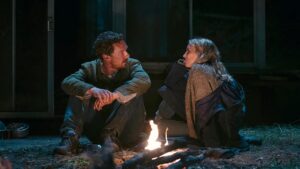 Mother has a rare positive interaction. And yet The End We Start From still feels distant. Twice in the film, the woman seems to abandon a potential haven in search of something better. And each time, I wanted to see a shadow of herself sticking it out and seeing how things progressed where she was. Also, the apocalyptic events are hinted at without being either truly described or attributed; if you’re making an argument to pay attention to climate science, you might wish to mention that once in the film. Is that too much to ask?
Mother has a rare positive interaction. And yet The End We Start From still feels distant. Twice in the film, the woman seems to abandon a potential haven in search of something better. And each time, I wanted to see a shadow of herself sticking it out and seeing how things progressed where she was. Also, the apocalyptic events are hinted at without being either truly described or attributed; if you’re making an argument to pay attention to climate science, you might wish to mention that once in the film. Is that too much to ask?
One little thing here; it’s not terribly important, but Jodie looks fantastic for a new mother in a foodless dystopia. If you want to sell me on the realism of the situation, you could, y’know. mess her up a little, yes?
I applaud any filmmaker who has looked around and decided that art is more important than money. The End We Start From has as much chance of breaking the top ten at the box office as I have at replacing Patrick Mahomes on the Chiefs roster. Hence, I repeat, I applaud the effort without necessarily applauding the film. The End We Start From is watchable; sometimes, that’s the best I can offer. Believe me when I say this is not something I say of every film.
A woman who had just given birth
Discovered no food on her Earth
So she drifted around
And covered much ground
But failed to find any mirth
Rated R, 102 Minutes
Director: Mahalia Belo
Writer: Alice Birch, Megan Hunter
Genre: Our screwed future
Type of being most likely to enjoy this film: Problem solvers
Type of being least likely to enjoy this film: Pessimists
